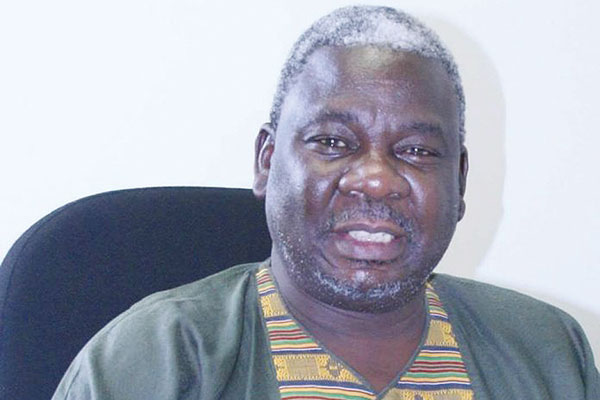
From 1953 to 1963, Malawi, Zambia and Zimbabwe were one country. Except for someone who has a real problem in their heads, even now that they are separate sovereigns, in fact their people are one. President Kenneth Kaunda’s mother and father hailed from Malawi.
Guest column: Michelo Hansungule
In 1965, President Emmerson Mnangagwa was deported to Zambia by the then Rhodesian regime following his conviction on treason charges. Mnangagwa and his colleagues, some of whom were executed were convicted of, inter alia, sabotaging rail lines. He himself was spared the maximum penalty due to his young age at the time. He lived in Chief Shakumbila in Mumbwa.
In fact, Joshua Nkomo, Robert Mugabe, Sam Nujoma of Namibia and many other freedom fighters as well as ordinary people from the then Rhodesia, Namibia, Angola, Mozambique and Malawi during the brutal dictatorship of Kamuzu Banda for years sheltered in Zambia.
So what is the problem with MDC Alliance principal Tendai Biti fleeing to Zambia when he has problems in Zimbabwe? Independent media had reported that security forces in Zimbabwe had surrounded his elderly mother’s house, a poor woman who is not a politician.
Same sources reported that Biti had escaped abduction by unknown people outside his law firm and later that live bullets had been fired at his car, all this after his statement in which he suggested that opposition leader Nelson Chamisa may have won this year’s disputed presidential elections.
The decision by Zambian authorities to handover Biti to Zimbabwean authorities after he had crossed into Zambian soil and in the face of a Zambian High Court order prohibiting this deportation is a clear affront to the Zambian Constitution which guarantees the independence of the judiciary.
Even in the most barbaric states, a civil servant cannot overrule a judge, it is simply not possible. But here it is in Zambia. Judge Yangayilo’s order staying the deportation of Biti was overruled by an immigration officer.
- Chamisa under fire over US$120K donation
- Mavhunga puts DeMbare into Chibuku quarterfinals
- Pension funds bet on Cabora Bassa oilfields
- Councils defy govt fire tender directive
Keep Reading
Yet, Zambia has had clear jurisprudence stretching to the days of the one-party State forbidding the Executive from deporting foreign nationals whose matters were pending before courts.
Many Zambians wondered why Biti’s deportation provoked such widespread anger and immediate response not only from Western countries including the US State Department, but from the United Nations as well? A friend had asked me how important Biti was to lead to this international outrage? Another colleague wondered whether Zambia did not act within its sovereign right in deporting Biti?
Zambia Foreign Affairs and Information minister were reported to have said Biti had to be returned back to his country because he did not meet the minimum conditions for grant of asylum.
On the other hand, Zambian sources suggested that Biti had to be sent back in order for Zambia not to worsen the already bad political situation post the harmonised elections and in particular the stand-off that followed the declaration of President Mnangagwa as winner of the presidential election.
As usual, Zambian authorities do not understand the applicable asylum laws. In basic international law, there is a distinction between immigration law and asylum law. The two are not the same and must not be confused for the other. In the Biti case, authorities invoked the immigration law yet Biti’s case did not fall under immigration law.
Biti was seeking political asylum which is a human right. A human right stands on a higher pedestal than other standards. A human right is a binding obligation on the part of the State, the duty bearer. It cannot be defeated by an abuse or even if properly exercised, immigration power of a civil servant.
Unlike Zimbabwe, Zambia ratified the UN Convention against Torture on October 7, 1998. Article 3 of the convention provides for the principle of non-refoulement according to which State parties or states like Zambia that ratify this treaty are forbidden from turning back any foreign national who crosses the border in search of asylum.
With this clear position of international law, why did President Edgar Lungu still deport Biti, risking all the international condemnation which followed? Of course, the first answer is simply because as indicated authorities don’t understand international law and its applicability on Zambia. Even with international law which Zambia has voluntarily acceded to, it is typical to find so-called authorities still citing sovereignty not realising that by signing the treaty, they have effectively signed it away.
But the main reason is political. Biti and other members of opposition in Zimbabwe had visited Hakainde Hichilema, Edgar Lungu’s nemesis, in the wake of his imprisonment in 2017 on trumped up charges of treason later withdrawn in humiliation.
Not only did Biti and his colleagues visit Hichilema to convalescence with him, but Biti himself made statements bitterly criticising Lungu’s decision to arrest Hichilema on trumped up charges, but describing the Zambian legal system as dead as the Zimbabwean.
Despite the expensive efforts to paint Lungu with the colour of a saint, in fact he is a vengeful man who believes in revenge. Biti is paying for being opposition member in his country and for exercising his fundamental right to freedom of expression on the Zambian soil.
This article is reproduced from the Zambia Watchdog.











